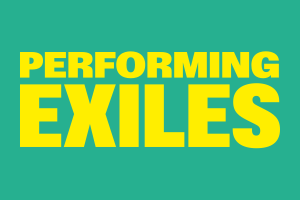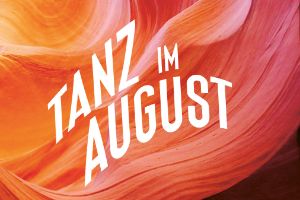
Georg Friedrich Haas
“Two things were clear to me from an early age: the twelve tones that a piano can produce per octave are too few for me. I need smaller intervals, finer nuances. And I want to compose expression, emotional music which moves and takes hold of people,” says Georg Friedrich Haas of his work. A renowned expert of microtonal concepts that draw on those of composers such as Wyschnegradsky, Hába, Nono and Grisey, his works are often defined by their microtonal elements. However, according to the composer a specific technique can only be a means to an end and he refuses to be compositionally pigeonholed: “I don’t trust relationships that become apparent only in the score rather than through immediate sensual perception. I hope that in my music, intuition and rational control are balanced,” he explains.
Born in 1953, Georg Friedrich Haas grew up in a mountain village in the Vorarlberg region of western Austria and was already exposed to New Music as a student through his music teacher, the composer Gerold Amann. Since 2013 MacDowell Professor of Music at Columbia University in New York, he now moves geographically between two poles. He sees himself as being integrated in the traditions of the Viennese School through his teachers Gösta Neuwirth, Ivan Eröd and in particular Friedrich Cerha, and at the same time takes the aesthetic freedom of American composers such as Charles Ives, John Cage and James Tenney as an important point of reference for musical expression that goes beyond ideologies.
He first aroused interest with his 1996 chamber opera “Nacht”, which like his second chamber opera “Die schöne Wunde” received its world premiere at the Bregenz Festival. Georg Friedrich Haas has composed numerous further operas since then; “Melancholia” – based on the eponymous novel by Jon Fosse – was premiered at the Opéra National de Paris in 2008 and subsequently at several other opera houses. He continued his collaboration with Jon Fosse for “Morgen und Abend” (2016), which was commissioned by the Royal Opera House in London and the Deutsche Oper Berlin. “Bluthaus” (2011), “Thomas” (2013) and “KOMA” (2016), with librettos by Händl Klaus, deal with existential topics and were each premiered at the Schwetzinger SWR Festspiele, sparking lively discussion among audiences and critics alike.
Georg Friedrich Haas’ most frequently played work is arguably his ensemble piece “in vain” (WP Klangforum Wien, 2000), which is in part performed in complete darkness. In 2010 his “limited approximations” for 6 micro-tonally tuned pianos and orchestra inspired audiences at the Donaueschinger Musiktage. Premiered by the SWR Symphony Orchestra under Sylvain Cambreling, the work has since become part of the orchestra’s established repertoire. Many other prestigious symphony orchestras have performed the world premieres of works by Georg Friedrich Haas including the Mozarteum Orchestra Salzburg (“7 Klangräume”, 2005), Cleveland Orchestra (“Poème”, 2006), Munich Philharmonic (“Bruchstück”, 2007), Vienna Radio Symphony Orchestra (Concerto for piano and orchestra, 2007), WDR Symphony Orchestra (Saxophone Concerto, 2008), Leipzig Gewandhaus Orchestra (“Traum in des Sommers Nacht”, 2009) and the Münchener Kammerorchester (“chants oubliés”, 2011; US premiere given by the Los Angeles Philharmonic). Highlights during recent years included the world premieres of “dark dreams” with the Berlin Philharmonic under Sir Simon Rattle (US premiere at Carnegie Hall), the “concerto grosso Nr. 1” for 4 alphorns and orchestra (hornroh modern alphorn quartet, Bavarian Radio Symphony Orchestra, Susanna Mällki) and “concerto grosso Nr. 2” for ensemble and orchestra (BBC Scottish Symphony Orchestra, Ilan Volkov), as well as during the 2014/15 season the world premiere of his String Quartet No. 8 given by the JACK Quartet, and Wien Modern’s focus on Georg Friedrich Haas’ music. During the festival the Arditti Quartet performed his String Quartets Nos. 1-7.
Following the premiere of his Octet for 8 trombones at the Donaueschinger Musiktage last year, Mike Svoboda will give the world premiere of Georg Friedrich Haas’s Concerto for trombone and orchestra there in October. Commissioned by SWR, Wien Modern, the Wiener Konzerthaus, Vienna Radio Symphony Orchestra and Sinfonieorchester Basel, the work can also be heard at Wien Modern in November where two more new works will be premiered: “Hyena” for speaker and ensemble and the String Quartet No. 9 performed by the JACK Quartet. Further season highlights include Georg Friedrich Haas’ residency at the Huddersfield Contemporary Music Festival, and the premiere of his ensemble work “Release” in January 2017 by the Ensemble Resonanz at the opening of the Elbphilharmonie in Hamburg. In summer 2017 Georg Friedrich Haas will be composer in residence at the Suntory Art Foundation’s Summer Festival where a new violin concerto composed for Miranda Cuckson will receive its world premiere.
Georg Friedrich Haas has received numerous composition awards and was honoured with the Grand Austrian State Prize in 2007. He is a member of the Austrian Kunstsenat, the Academy of Arts Berlin (2012), the Bavarian Academy of fine Arts (2015) and an honorary member of the Wiener Konzerthaus (2016).
As of January 2017
